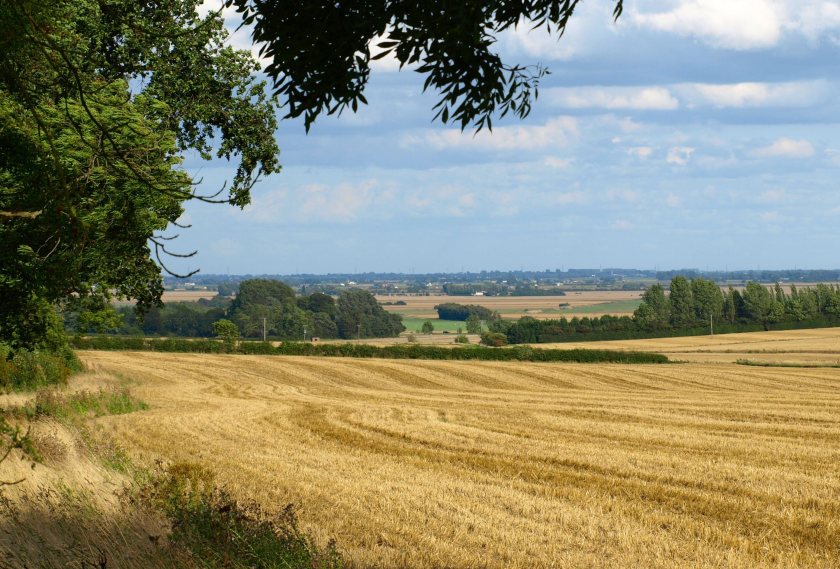Farmers warned drought will drag into autumn despite rain

Farmers are being warned that drought conditions will drag on well into the autumn, with crops and livestock under mounting strain despite recent rainfall.
The National Drought Group (NDG) said today (15 September) that this summer – the hottest since records began in 1884 – has left reservoirs, rivers and groundwater at critically low levels.
Average storage is just 56.1% compared with the seasonal norm of 82.8%, and some holdings in the Pennines and Yorkshire are at less than a third of their expected capacity.
Dry conditions have disrupted harvests, with yields described as lower and poorer in quality than usual. The public have also faced restrictions such as hosepipe bans, while low water levels have forced closures on key waterways.
The drought is also hitting wildlife and habitats hard. Peatlands have dried out, wildfires have destroyed at least 3,000 hectares of protected land, and species from salmon and natterjack toads to hedgehogs and wetland birds are struggling to survive.
Dr Tony Juniper, chair of Natural England, said the ecological consequences would last long after the rain returns, impacting farms.
"Many farmers have really suffered this year because of drought, following a year when they were hit by extremely wet weather. As the impacts of climate change ramp up we will experience more of these kinds of extremes.
"We need to take action now to make our landscapes more resilient, including through the creation of more wetlands to help cope with the effects of both drought and flood.”
Alan Lovell, chair of the Environment Agency, said the recent showers were “nowhere near enough to reverse the impact of the last seven months, which have been the driest since 1976.”
He added: “The environment bears the brunt of this lack of rainfall, and this summer we have seen widespread impacts from low river levels, fish needing to be rescued, and wildfires.
"We are calling on everyone to continue to take simple steps to reduce their water use and are grateful to people for following the restrictions imposed by water companies. By saving water, we all leave more water in the environment.”
The Met Office has warned that while autumn may bring wetter-than-average conditions in parts of the UK, rainfall will not be evenly distributed.
Chief Meteorologist Will Lang said: “The top five warmest UK summers on record have all occurred since 2000, with summer 2025 now officially the hottest. High pressure dominated throughout the season, bringing persistent warmth, below-average rainfall, and drought conditions for many areas.
"Importantly, even with the overall signal for wetter weather, and the chance for flooding in some places, this does not guarantee that current drought conditions will ease consistently across the country.
"Drought conditions and the potential for flooding can occur at the same time in different parts of the UK, such is the nature of our climate.”
The NDG, which includes Defra, the Met Office, the NFU, water companies, conservation groups and land managers, said water resources will remain under pressure for months to come. It praised households for cutting back on usage but urged further restraint to ease pressure on supplies.
Water companies are continuing to enforce temporary use bans in some regions, with Yorkshire Water applying a blanket ban and others – including Thames, South East Water and Southern Water – imposing restrictions by postcode.
The Environment Agency said it is working closely with farmers on water-saving measures and stepping up checks on businesses that abstract water. It stressed that recovery will depend on a wet autumn and winter to replenish depleted rivers, aquifers and reservoirs.








